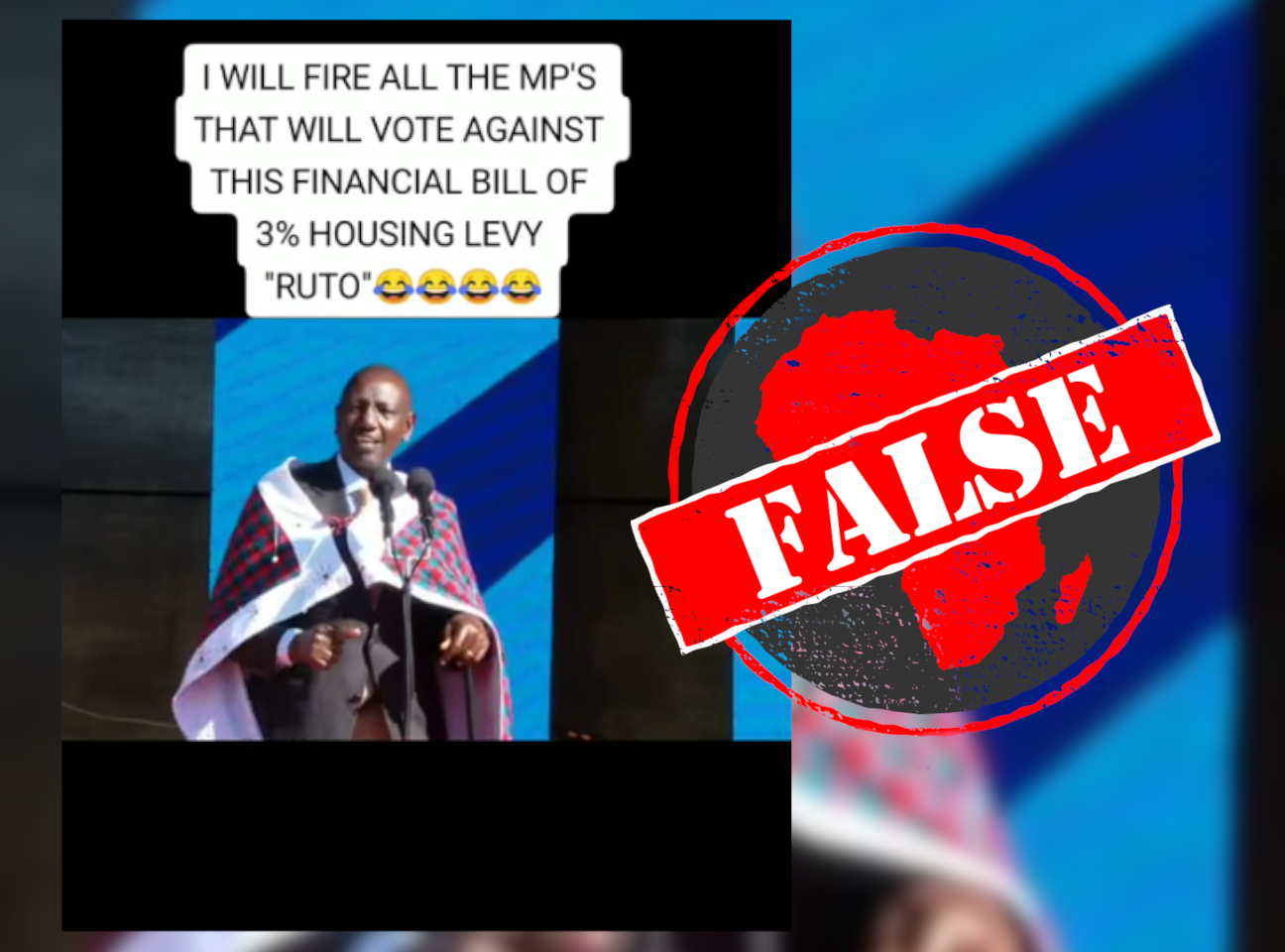IN SHORT: A video posted on TikTok is captioned as though Kenyan president William Ruto threatened to “fire” members of parliament who voted against his party’s proposed bill. But this claim is inaccurate, as Ruto supported calls for open ballot voting. He also has no power to fire an elected representative.
A video posted on TikTok shows Kenyan president William Ruto addressing a rally. He first speaks in Kiswahili, the native language of many Kenyans, before switching to English.
The video is captioned “I will fire all the MP’s that will vote against this financial bill of 3% housing levy”, followed by laughing emojis.
It has received over 800 likes and 350 comments.

The proposed housing levy and passage of the bill
Ruto's government has proposed a mandatory housing levy of 3% of workers' basic salary, to be matched by an equal contribution from employers. The money is to be used to build affordable housing.
But the proposal has been one of the most controversial in the 2023 Finance Bill. The executive pushed for its passage, but it was opposed by several labour groups and opposition leaders.
The bill seeks to amend various laws relating to taxes and levies in order to increase government revenue from taxes collected.
Opposition leaders argued that members of parliament (MPs) should vote in an open ballot system so that voters could see which side their MPs were voting on.
Following public hearings on the bill, the government made some concessions. These included halving the housing levy from 3% to 1.5%.
The amended bill was debated and later voted on in the national assembly in June 2023, with the government winning a key vote. At least half of the members present had to vote in favour.
But did president Ruto threaten to fire legislators who did not support the bill? We checked.
Ruto misquoted in caption
The shared video clip itself is unedited. However, in this speech, Ruto never said he would sack MPs.
Instead, he referred to the earlier calls by opposition leaders for an open vote. Ruto said he supported these calls and that he himself would wait to see which MPs would vote against the bill.
His exact words were: “I am waiting for the members of parliament who will go and vote against the plan to give these young people, [the] majority of them their voters, employment and housing. I am waiting for them to go and vote against the employment of these young people and against housing that will give these people a chance to own a decent home.”
It is important to note that the president has no power to dismiss an elected representative.
Article 103 of the Kenyan constitution defines how a member of parliament can lose their seat. However, according to the Political Parties Act, supporting another political party can lead to expulsion from the party, resulting in a byelection.
The claim that Ruto threatened to sack MPs who opposed the Finance Bill is inaccurate.
Republish our content for free
For publishers: what to do if your post is rated false
A fact-checker has rated your Facebook or Instagram post as “false”, “altered”, “partly false” or “missing context”. This could have serious consequences. What do you do?
Click on our guide for the steps you should follow.
Publishers guideAfrica Check teams up with Facebook
Africa Check is a partner in Meta's third-party fact-checking programme to help stop the spread of false information on social media.
The content we rate as “false” will be downgraded on Facebook and Instagram. This means fewer people will see it.
You can also help identify false information on Facebook. This guide explains how.


Add new comment